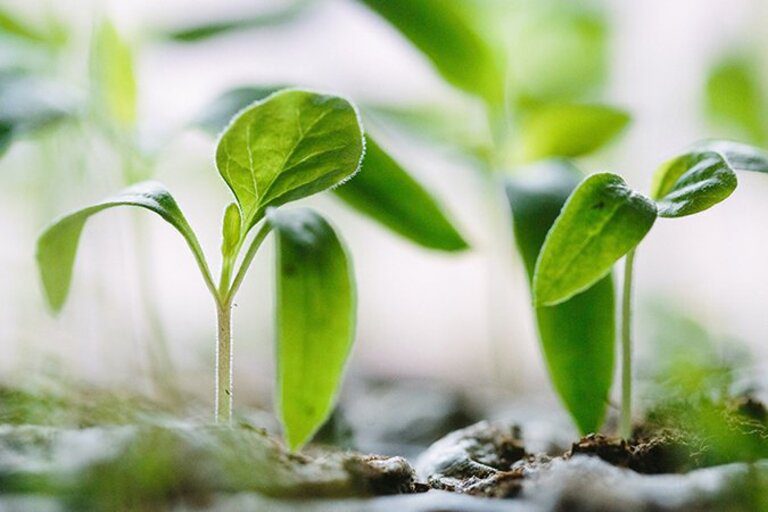
How Plant Hormones Affect Growth And Development
Plants are intricate organisms, constantly adjusting their growth and development in response to internal and external cues. Chief among these changes are plant hormones, powerful chemical messengers that regulate many processes from seed germination to fruit ripening Here is a closer look at how plant hormones influence growth and development.
1.Auxins: The Growth Architects:
Auxins play an important role in the structure of a plant. It is mainly produced at branch tips and is required for cell proliferation, as well as root and root growth. Because auxins are unevenly distributed in plant tissues, they produce upstream processes that direct plants where and how they grow. For example, when a plant is exposed to light, auxin accumulates on the shaded side, causing cells to elongate and the plant to bend to the light, a process known as photomodulation.
Auxins also play an important role in apical dominance, with the main stem growing more vigorously than lateral branches. This is because auxins produced at the shoot tips inhibit the growth of side shoots. In addition, auxins are essential for root growth; Root formation is stimulated in cuttings, which is why auxin is commonly present in root tissues.
2.Gibberellins: The Growth Stimulators:
Gibberellins, or GA, are another compound that significantly affects plant growth. They are known for their ability to provide tree extension, making plants taller and generally sturdier. GAs act by stimulating cell division and expansion, which is especially important during periods of rapid growth.
In addition to height affect, gibberellins are necessary for seed germination. They help to release dormant seeds by activating enzymes that activate storage foods stored in seeds, providing the energy needed for emerging seedlings Gibberellins influence flowering and fruit growth, making them essential for harvest time and quality control in agriculture.
3.Cytokinins: The Division Experts:
Cell division is primarily driven by cytokinins. They are synthesized in the roots and transported upwards into the shoots, where they play an important role in stimulating growth. Co-regulation of plant growth by cytokinins and auxin. The balance between these two hormones determines whether a plant will produce more shoots or branches.
4.Abscisic Acid (ABA): The Stress Manager:
Abscisic acid, commonly known as ABA, is known to be a plant stress hormone. It plays an important role in helping plants cope with adverse conditions such as drought and high salinity. ABA causes stomatal closure to decrease water loss and increase other physiological responses that increase stress tolerance.
ABA is also included in the vertical seed. It prevents seeds from germinating until conditions are favorable, thus preventing premature germination. This mode of sharing is crucial for the survival of many plant species.
5.Ethylene: The Ripener and Stress Responder:
Ethylene is perhaps best known for its role in fruit ripening. It affects various aspects of the ripening process such as softening of the fruit, breakdown of cell walls, and aromatic compounds Ethylene also causes leaf shedding, shedding of these organs, which can be important for reproductive cycle of a plant.
In addition to these functions, ethylene helps plants respond to mechanical stress and injury. For example, if a plant is damaged, ethylene can cause protective layer formation to facilitate repair.
6.Brassinosteroids: The Growth Enhancers:
Brassinosteroids are a relatively recent discovery in plant biochemistry but have already been shown to be important in growth promotion. These hormones cause cells to expand, contributing to the height and growth of the entire plant. They also help plants withstand stress conditions such as extreme heat and pathogen attack.
7.Jasmonates: The Defenders:
Jasmonates are important for plant defense mechanisms. They are involved in the production of protective antibodies against herbivores and pathogens. Jasmonates also play a role in stress responses, including in response to mechanical injury.
Plant hormones are essential for regulating plant growth and development. From ensuring seed germination under the right conditions to controlling when fruits are ripe, these hormones orchestrate complex mechanisms that allow plants to thrive in a variety of environments How these chromosomes work an understanding of the strains provides valuable insights into improving agricultural practices, increasing crop yields and monitoring plant health.
Related blog>https://www.climatechallange.com/10-benefits-of-planting-trees-for-the-environment/